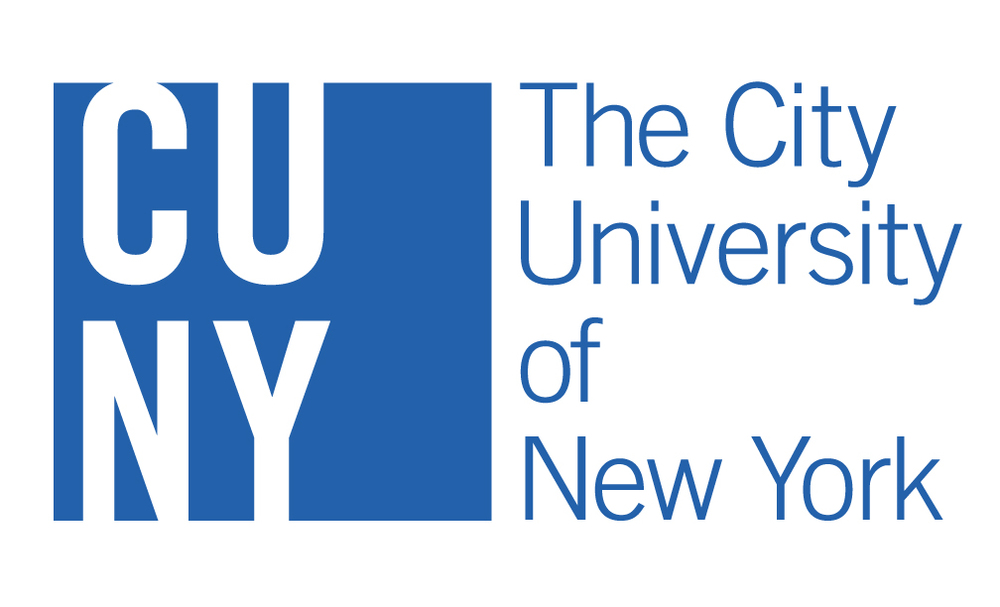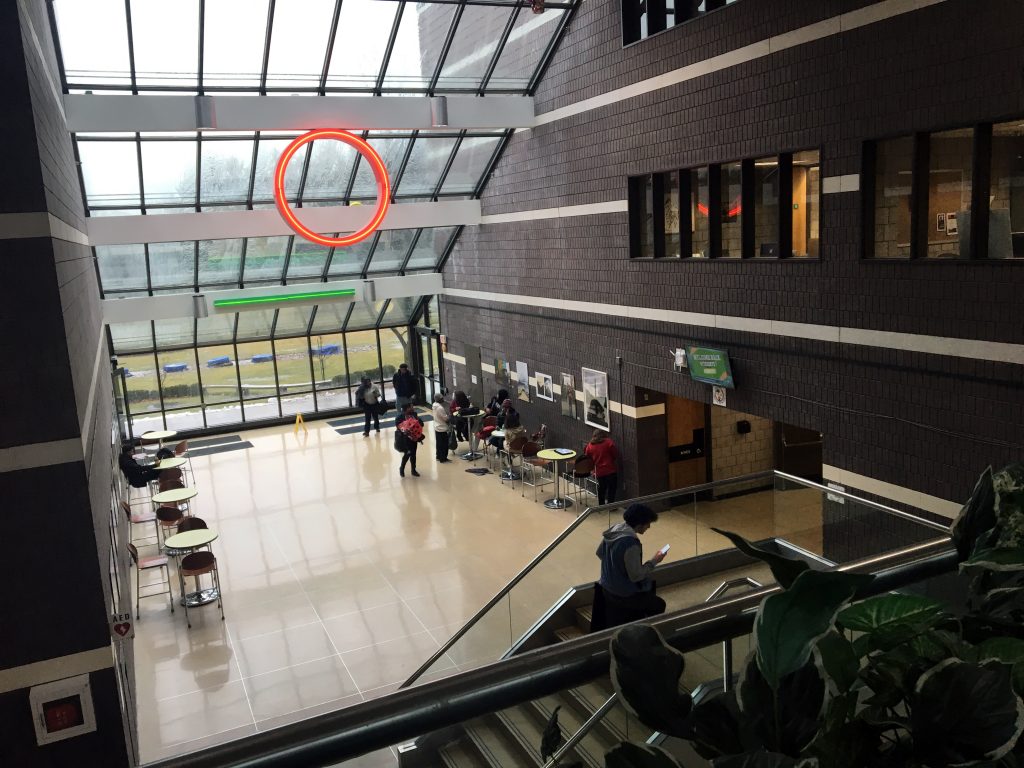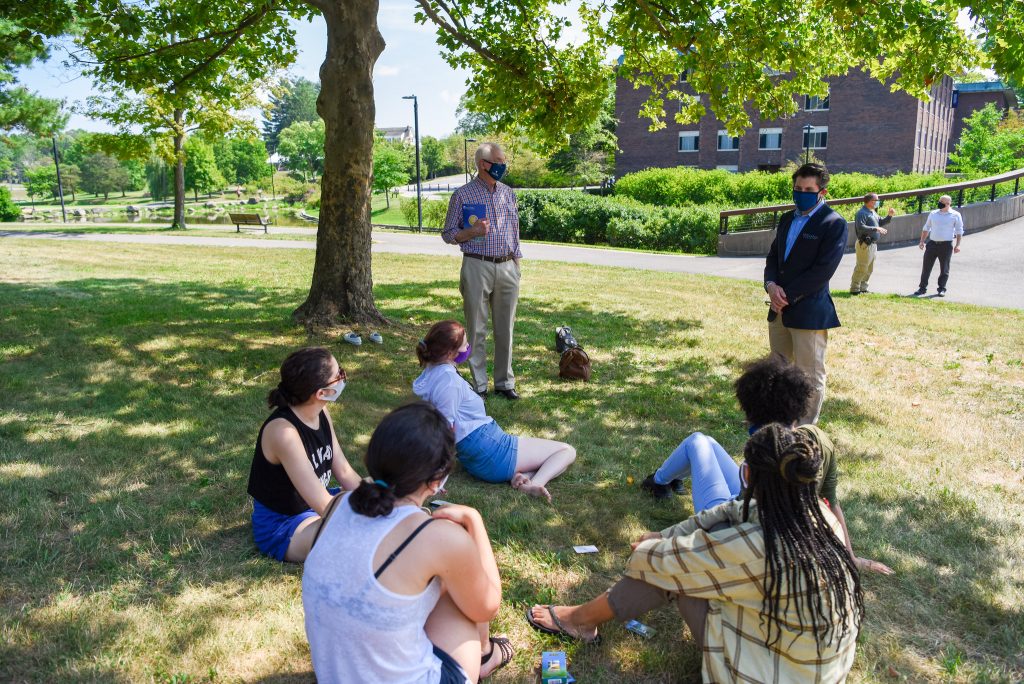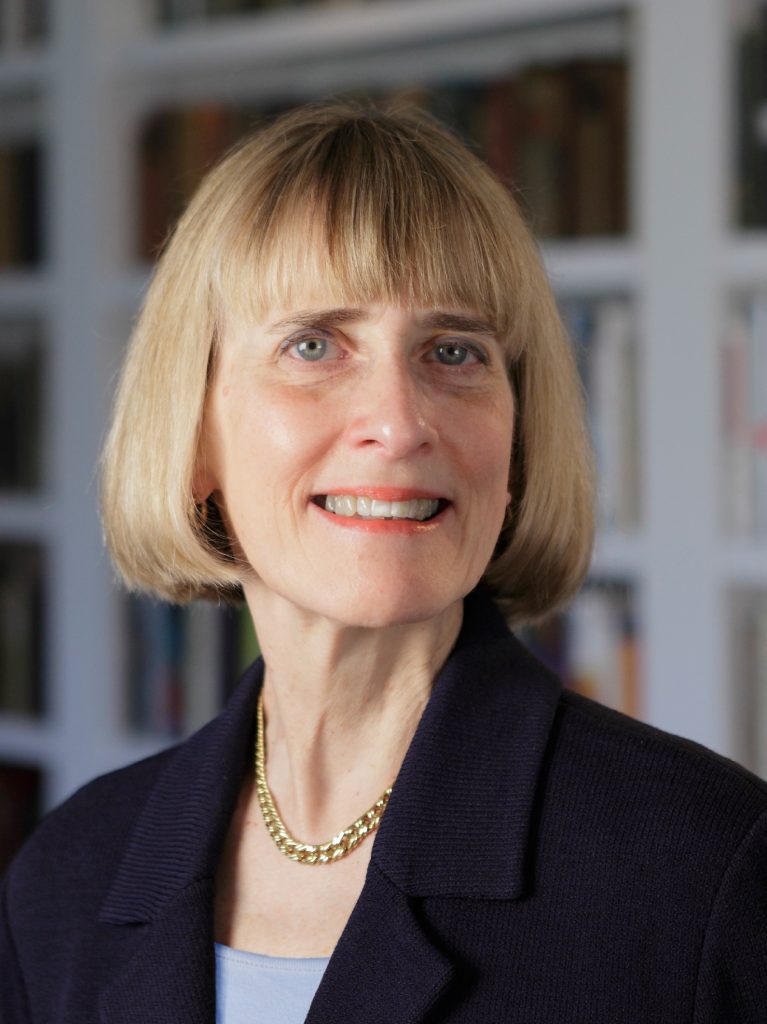William C. Thompson Jr., Chairperson of the Board of Trustees of the City University of New York, and Chancellor Félix V. Matos Rodríguez addressed the false claim by the Professional Staff Congress (PSC) that “mass layoffs” have been enacted across the university.
In a letter responding to an inquiry from U.S. Rep. Carolyn Maloney and seven of her fellow Congress members, Chairperson Thompson and Chancellor Matos Rodríguez write that, “Contrary to what the Professional Staff Congress has claimed, we did not lay off or furlough full-time personnel in the past academic year and for the start of the Fall semester. … We were able to negotiate two deadline extensions with the PSC and sought to extend the re-appointment notification deadline further, until our budget was finalized, but the PSC rejected our proposal, forcing us to make final decisions by June 30, a time at which we did not yet have a complete picture of our financial outlook. If the fiscal and enrollment situations become more favorable, we plan to re-appoint as many adjuncts as we can.”
Below is the full text of the response to members of Congress from Chairperson Thompson and Chancellor Matos Rodríguez.
August 31, 2020
Dear Distinguished Members of Congress:
We want to thank you for your continued interest and support for the City University of New York in these unprecedented times. As we look to the future and work to ensure the University is able to serve its students, faculty and staff effectively and responsibly, we are cognizant about the realities we face. CUNY is not immune to the budgetary challenges that have strained University systems nationwide, nor are we invulnerable to the human toll that has taken place.
But this is not without extraordinary challenges. In the absence of additional federal funding to support New York State and New York City through this crisis, our fiscal outlook continues to be clouded by concerns that have led us to make decisions that may have seemed unthinkable before. The best way to support CUNY’s mission of continuing to lift generations of low-income New Yorkers is to keep pressing the federal government to exercise leadership and provide stimulus funding to improve the fiscal outlook for state localities and institutions of higher learning.
It is only through this kind of support that we can continue to move forward as a university and a country and rebound from this pandemic. We would like to take this opportunity to now respond to some of the points in your Aug. 24th letter and to clear up some misconceptions and provide context to actions that have been taken. We believe that by doing so, it will allow us to thoughtfully and effectively address issues that we view as critically important to the welfare of the entire CUNY community.
No “Mass Layoffs” at CUNY
Contrary to what the Professional Staff Congress (PSC) has claimed, we did not lay off or furlough full-time personnel in the past academic year and for the start of the Fall semester. In reality, part-time adjuncts who by contract have to be re-appointed annually were not re-appointed because of a contractually mandated deadline. We were able to negotiate two deadline extensions with the PSC and sought to extend the re-appointment notification deadline further, until our budget was finalized, but the PSC rejected our proposal, forcing us to make final decisions by June 30, a time at which we did not yet have a complete picture of our financial outlook. If the fiscal and enrollment situations become more favorable, we plan to re-appoint as many adjuncts as we can. In the meantime, we have reappointed college assistants and other hourly employees on a month-by-month basis, which would have been our preference with the part-time adjuncts.
False Narratives on the CARES Act
The PSC’s inaccurate interpretation of the CARES Act was brought to light recently when a Federal Judge rejected the PSC’s claim in United States District Court in the Southern District of New York that CUNY was obligated to re-appoint 2,800 adjuncts faculty and employees under the CARES Act stimulus funding. The Court instead sided with CUNY, stating that the adjuncts did not have a vested right of reappointment, since Congress did not impose a concrete requirement to preserve employment.
- CUNY has almost completed the allocation of $118 million in CARES Act funds that have been designated to students. Because we moved quickly upon receiving the aid, we were one of the first Universities in the nation to distribute the funds starting on May 22. We have also secured an additional $9 million for students through private and corporate philanthropy fundraising efforts for the Chancellor’s Emergency Fund, which was established in April to help students who have experienced job losses and other financial setbacks during the pandemic. The University has thus far awarded $500 grants to 6,000 students and counting, prioritizing undocumented students and international students who were excluded from CARES Act funds. CUNY believes that by supporting students we are bolstering enrollment, one of the chief determining factors in retaining adjuncts.
- Regarding the $132 million of CARES Act funding that is to be allocated directly to the campuses — we have submitted a plan to the State that prioritized student support and mental health services, reimbursements to campuses for COVID 19-related costs such as refunds, and investments in online infrastructure and training. The plan has been approved by the State, but we decided to hold back the use of the majority of these funds until we conclude our budget process. We are currently releasing some of the funds to reimburse campuses for COVID-19 related expenses.
CUNY Keeps Doing More with Less for Our Students
- We continue to do more with less to support our students. Even with roughly $64 million lost tuition revenue from a 4.4% drop in fall enrollment as of Aug. 25 we have continued to offer about the same number of sections as last Fall and overall class size, system-wide, is on average lower than it has been in the last six years. We have worked hard to generate annualized savings – some $17 million so far — through a strategic hiring freeze process to invest in student academic and support services.
- We are also facing substantial financial challenges in the City’s recently adopted FY21 budget. The budget includes $25.3 million in efficiency targets above those announced for FY20 bringing CUNY’s total savings target to $46.3 million for FY21, or about 9% of the community colleges’ total operating budget.
- We also want to note that while we wait for news on a federal stimulus bill, the Board of Trustees and the Chancellor’s Office agreed to delaying the presentation and approval process of the 2020-21 CUNY budget which normally is voted on by May or June. This includes a pending vote on a proposed tuition increase.
This Semester: Safety First for the CUNY Community
The University’s decision-making for the start of the Fall semester this week has been guided by a commitment to safeguarding the health and safety of our students, faculty and staff. Fewer than 2% of the nearly 50,000 course sections for the fall term will be fully in person (and these are courses that are very difficult to offer online), minimizing the need for students and faculty to have to travel to our campuses. No one will be allowed to enter a CUNY campus without first undergoing a health screening from our new Pro/Contact Tracing mobile app. Additionally, occupancy limits will be applied and enforced in all campus spaces, including classrooms, where there will be a minimum of six feet of distance between seats and instructors, and students will be required to wear masks. Enhanced cleaning protocols will be in place, with campuses performing deep cleanings of each classroom multiple times per day. All of our campuses have certified “Reopening Plans” which were created in consultation with students, staff, unions and faculty.
Despite the challenges of starting the Fall Semester in the midst of a pandemic, we remain optimistic about CUNY’s future. We know that you share our goals to enrich our community and to improve the lives of everyone associated with the University. We urge you to please keep pushing the federal government for additional stimulus funding to aid state localities and higher education, and we’re confident that by working together we can focus on what really matters most. We look forward to continuing this discussion and finding solutions to these challenges.
Sincerely,
Félix V. Matos Rodríguez, Ph.D., Chancellor
William C. Thompson, Jr., Chairperson, Board of Trustees







Facebook Comments